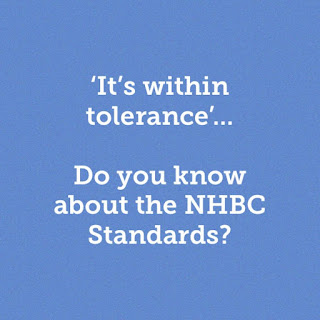Gas leaks: do you know what to do? Learn from our mistakes.
We found a gas leak in our new build flat and that’s when we realised that we didn’t know what to do! Gas leaks can lead to fires or explosions which is why it is important to be gas safe in your home. This Gas Safe Register webpage talks about the risks of unsafe gas appliances.
I hope that by sharing our experience, it will raise awareness of gas safety for others! Please do look at the links so if you do find a gas leak, you will have a better idea of what to do and what to expect!
Not long after we moved in, I thought that there were a few occasions where there was a faint smell of gas in the utility room. Weirdly, Hubby couldn’t smell it so I thought maybe I was wrong. In the end, I did some research online and found that there are gas detectors that you can buy. We ended up buying this TPI combustible gas detector as it had good reviews and can be used to pinpoint the source of the leak.
This was our first mistake. The Cadent website says that if you smell gas and/or suspect a leak, you should immediately phone the National Gas Emergency Service number.
We have a gas pipe in the utility room so we used the detector to check along the pipe. We were shocked when the detector beeped rapidly at certain areas of the pipe as it meant that there was a leak.
I think we spent the first minute just in shock and then decided that we would double check. The rapid beeping happened again and that’s when we realised that we didn’t really know what steps we needed to do next so we searched on Google. We just clicked on the first link that we saw which was the Cadent website. They manage the National Gas Emergency Service on behalf of the gas industry.
The National Gas Emergency Service number is different depending on where you live and the type of gas. You can find the list of numbers here on the Gas Safe Register website.
Both websites have a list of actions to follow to stay safe if you have a gas emergency. The Cadent website has a video of 5 tips to remember if you smell gas.
Tip: Make sure you know which number to use and familiarise with what actions you need to take if there is a gas emergency.
We called the National Gas Emergency Service number for England, Wales and Scotland and quickly got through to someone to report the issue. They asked us for our details and said an engineer would be with us in the next hour. They also gave us advice on what to do next.
We followed the advice and waited for the engineer to arrive.
Tip: Make sure you know where the gas emergency control valve is located for your property.
It was a relief that the engineer arrived in under an hour and confirmed that there was a leak and shut off our gas supply. Luckily, it was only a small leak! The emergency gas engineer was so helpful and we had a lot of questions for him but he was patient and understanding.
The emergency gas engineer will take steps to ensure it is safe, which for us meant he shut off the gas supply to our flat.
As our property is under the defects period, we looked in the information pack for the emergency defect number to inform the developer to fix the leak. Without gas supply, it meant we didn't have hot water or heating! Luckily, it was summer so we didn’t need heating yet.
Little did we know our afternoon was about to get even more stressful. It was a Saturday so I dialled the out of hours emergency defects number from the developer and found that the phone number was no longer in use.
Tip: Check the defects phone numbers provided to you by the developer actually works when you first move in.
It ended up taking us around 40 minutes to find the appropriate person for emergency defects. We called multiple numbers and had different responses, which was very confusing. Initially, we were told that we couldn’t report the defect on the online portal as it was our responsibility to fix it. However, in our information pack it was clearly stated that a gas leak was a defect that would be rectified by the developer.
It only got worse. After speaking to the appropriate person, we were told that they couldn’t find which contractor was allocated to our flat to rectify defects and this couldn’t be resolved by the out of hours team. We were asked to call back on Monday.
In the information pack, it states that emergency defects are supposed to be resolved in 24 hours. This didn’t happen.
Tip: It’s worth checking whether the timescales for rectifying defects are the same if the issue is reported out of hours so you know what to expect.
We reported the issue on Saturday and the leak was fixed on Monday. It involved multiple calls with the developer and the communication between parties was not great. At one point, after a gas engineer had come by for an initial visit to our property, we received a call from the developer to arrange a time on the following day for an engineer to fix the problem and they weren't aware an engineer had already visited!
Another fact that we didn’t know was that by law, all gas engineers must be on the Gas Safe Register if they are working in the UK, Isle of Man, and Guernsey.
What is the Gas Safe Register?
They are the official list of gas businesses and engineers who are registered to work safely and legally on gas appliances.
For more details, please see their website.
Always check the Gas Safe Register
You can check the business by inputting the business registration number or business name. To check if the engineer is currently Gas Safe registered, you will need their licence number. The link to check the Gas Safe Register is here.
I didn’t know to check this! I only found out because I was chatting with my parents and updating them on the gas leak and Dad asked if I had checked the Gas Safe Register.
Before having gas work done, always check the engineer is registered and qualified to do the work.
Thankfully, no work had been done after the engineer’s initial visit as he had looked at the issue and said he needed to come back in the afternoon to fix the leak.
The Gas Safe registered engineers must carry their Gas Safe ID card when they are carrying out work. Remember to check both sides of the card. The front has details such as the business they work for, licence expiry date, licence number and the back has the list of work that the engineer is qualified to do and the expiry dates.
The Gas Safe Register has a clear guide on this and a really useful video.
When the engineer returned later that afternoon to start the work, I asked to see his Gas Safe ID card and confirmed the details.
He completed the work and showed us that there was no longer a leak with his testing equipment and it was such a relief to know if was all fixed! We later received via email a copy of the Gas Safety Record from the engineer.
We had also flagged to our neighbours in the building that a gas leak was identified in our flat and lent our gas detector to them. Two other flats reported a gas leak which was confirmed as a leak by a Cadent emergency gas engineer which was really worrying!
Following this experience, I was shocked at how little I knew about what to do in the event of a gas leak and because of this, our experience was much more stressful than it needed to be.
It was also incredibly disappointing that there was a gas leak since it is a new build property and that multiple flats in our building had reported a leak.
I wrote this post to raise awareness of gas safety. We had a stressful experience because we didn’t know what to do. I wish I had read an article about it beforehand so at least I would have a better idea of where to find the information and what steps to take.
Some more useful links:
National Grid: Emergencies and safety advice
Uswitch: Gas safety: 10 tips that could save your life
Uswitch: Gas leaks: how to prevent and detect a leak
Stay safe!
Jess





Comments
Post a Comment